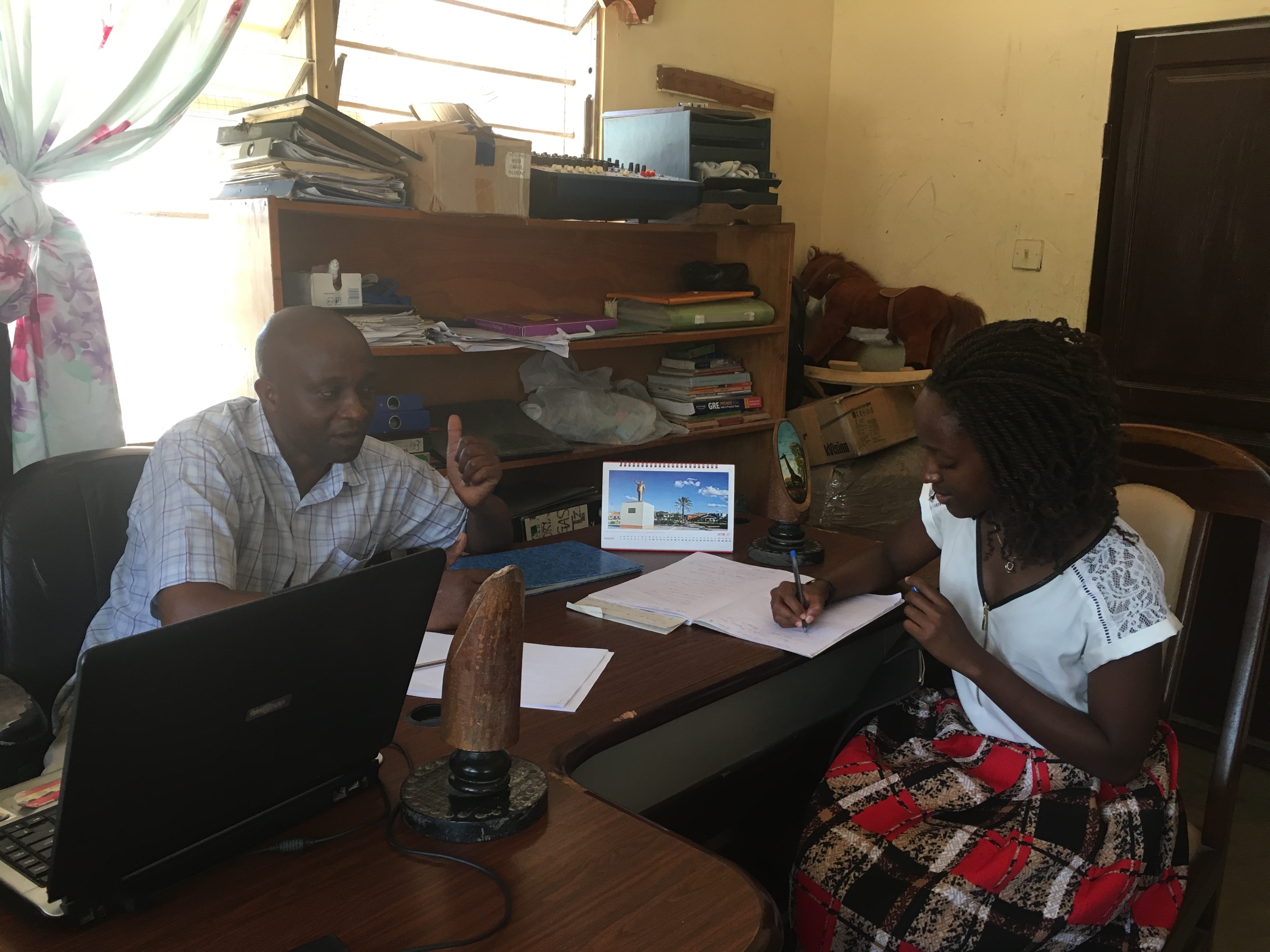Exploring the History of Street Children and the State’s Policies for Urban Migration from Colonial Times to the Immediate Post-Independence Ujamaa Period
Experiencing The World Fellowships
 This summer I conducted preliminary research in Dar es Salaam, Tanzania on the history of street children and how it affects the society’s perception of their condition. My research was comprised of two parts: a) working through archival records on the colonial and immediate postcolonial conditions of street children in Tanzania; b) interviewing people who work with centers for street children and children’s rights.
This summer I conducted preliminary research in Dar es Salaam, Tanzania on the history of street children and how it affects the society’s perception of their condition. My research was comprised of two parts: a) working through archival records on the colonial and immediate postcolonial conditions of street children in Tanzania; b) interviewing people who work with centers for street children and children’s rights.
From interviewing the Tanzania Child Rights Forum, I learned that children connected to the streets are categorized into 3 groups: street living children, street working children, and street families. Street living children spend the day and night on the streets without parental guidance. Street working children only work on the streets but have a home to return to at night. Street families constitute children living on the streets because their family, usually led by a single mom, lives on the street. Most people in Dar es Salaam see street children as one homogeneous group, comprised of minors used by parents and guardians as a source of income. This view impedes the extent to which street connected children are seen as a part of the society and worthy of being empowered. From my Rhetorics of Gender and Poverty class, this phenomenon was termed as the underserving poor, hence the society’s minimal involvement. It was also interesting to find that some children still had connections with family members and received financial aid from them, though sporadically.
Subsequent conversations with former street children and beneficiaries of Dogodogo stressed the fact that it is important to focus on the types of families street connected children come from. Most research identifies poverty as a factor that cuts across the demographic. However, a deeper look shows that most children come from single parent families and are often victims of divorce, sexual and physical abuse.
It was intriguing to observe the way social workers and former street connected children interacted with children on the streets during their outreach programs. An example being, the Mobile Classroom, an initiative run by Dogodogo through which children on the streets are taught basic math computations and the meaning of English safety words by an instructor on the streets. I also learned about more organizations through my internship with Dalberg Global Development Advisors, a multinational strategic advisory firm focused on the development sector. My professional advisor introduced me to educational initiatives, such as Ubongo. Ubongo is an edtech initiative that makes educational content for children and uses mediums such as Television, phone applications, and radios for dissemination. Another initiative is Educate!, which is heavily based in Uganda and influences the curriculum by incorporating entrepreneurial education. I was also granted access to Dalberg’s report on street children in Senegal, which showed me a different perspective, all the while reminding me that the condition of street connected children is a multi-faceted challenge.
With regards to challenges, it was difficult to access records on street children, education, or police dealings with children from the National Archives and Records of Tanzania mostly due to the absence of such records from corresponding ministries or the inexistence of corresponding ministries before independence to the immediate post-independence Ujamaa period. I was also not able to visit centers for street children outside Dar es Salaam due to heavy rains in the preceding month. In addition, two of the centers I planned to visit were no longer operating.
Beyond these challenges, I have personally learned that home is not waiting for me. My learning is best expressed in a blog titled Dear African Abroad: Home is NOT Waiting For You from a site called Tea-Wale. This submission was written by Priscilla Takondwa Semphere, an ALA alumnus from Malawi, a children’s book author, a writer for the Huffington Post, and a senior at Smith College.
“... And so, for any young African like me who is studying abroad and aspires to return, there’s nothing quite like coming home to remind you who you are- how small you are. It makes you realize that all those nights spent writing essays about this distant home in defense of it can essentialize home, romanticize it, trivialize it. Home can become this ill-spoken-of place that you constantly defend, so that in a sick and twisted way, you begin to breed, in yourself, a sort of savior mentality. Home can become this distant thing to be saved. Home can become a wild, unraveling epic in which you cast yourself as a heroine for desiring to return. But who in the world are you?
More, is the humbling realization that home has not been waiting on the edge of its seat for you to arrive, arms held out in waiting for something you could never possess to give it. Home is dynamic as ever, bending, breaking, reshaping itself and self-correcting. It is brimming with possibility. Possibility you have very little to do with. Although you had to leave, it is filled with people who never left- experts who have spent their time thriving in and in spite of all the aspects of home you hope to contribute to changing.
Remember that home is not your little project. Home is not waiting. Home is not frozen in your absence. Should you decide to do so, the home you left behind is not the one you will return to. Do not expect to be at home in all the same spaces. Feel your way in. Fall into place where you’re meant to. Home has changed, and so have you. Return as much as you need to, for as long as you must. Settle as necessary. Never count yourself greater for having left. Remember that the greatest experts are, to use this tired phrase, “on the ground”.
So, whenever it is that you come home, do so with your head bowed, with your ears sharp and attuned to listening. Take your shoes off at the door, be confident to speak and share the perspectives you’ve learned, but be quick to listen and learn how exactly it is that home needs you.”
It is my hope that I leave Tanzania with an appreciation of its dynamism and changing landscape in the development sector. And that this appreciation unfolds into a yearning to learn about access to education for out of school children from similar and neighboring countries such as India and Kenya.






